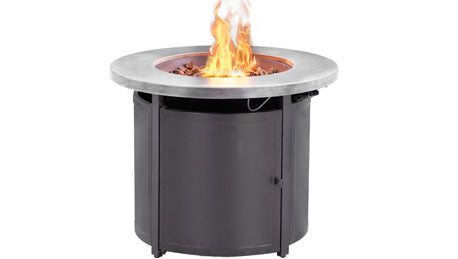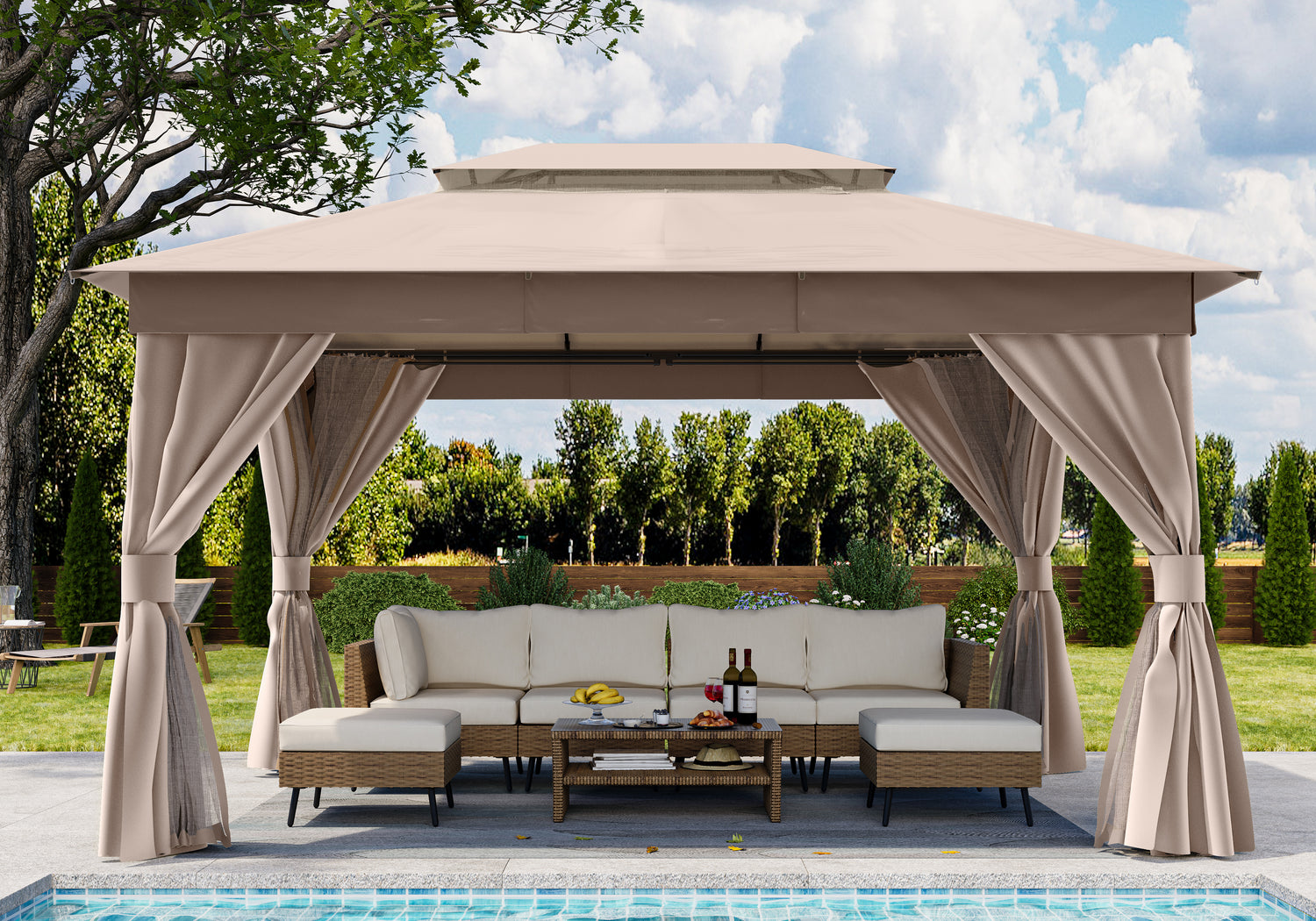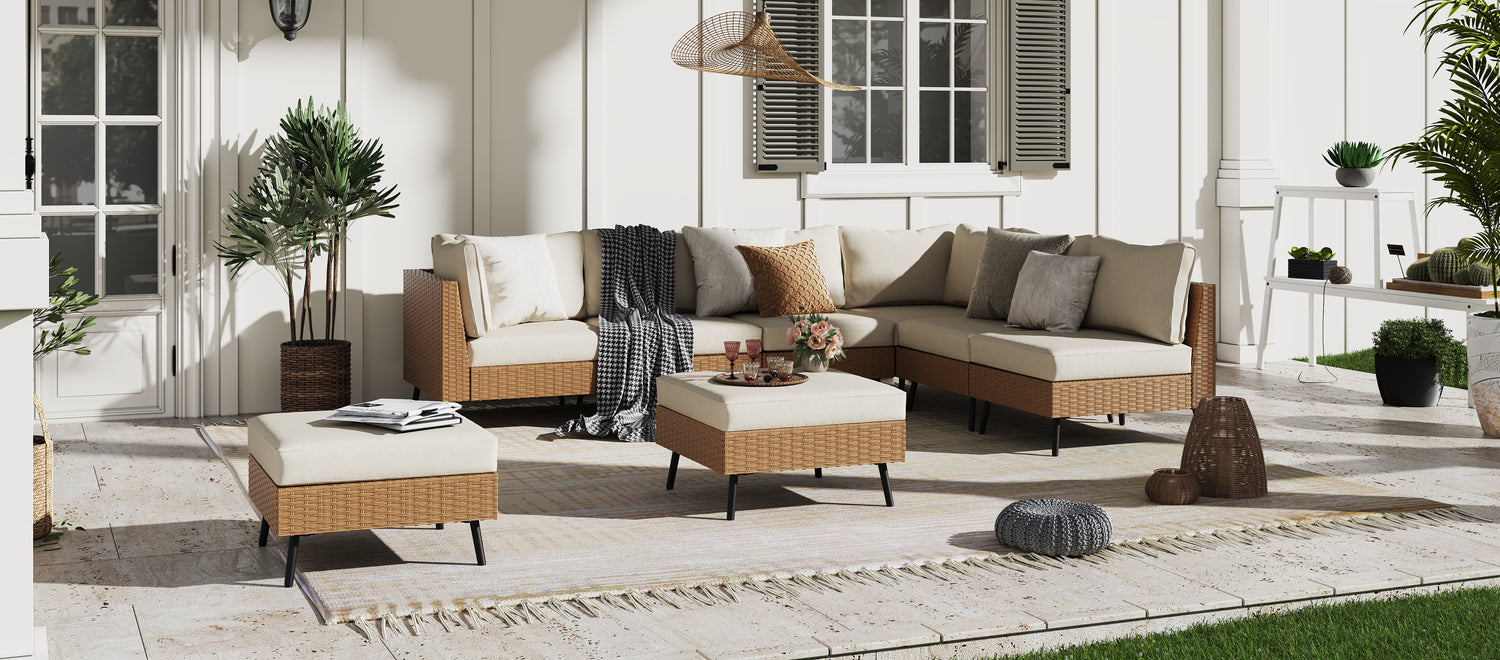Patio heaters can run on various fuel types, the most common electric patio heaters, Propane and natural gas. Propane cylinder is a popular choice since when compared to other techniques, propane-fueled patio heaters offer various advantages. Besides everything, how long Does Propane last in Patio Heater, this is the frequently asked question.
You should be able to set up the propane (gas and liquid propane) tank to complete the task quickly. You also don't have to be concerned about maintenance.
You'll be able to finish the job and relax while doing so! Propane tanks will be available in both permanent and portable configurations. It is up to you to examine your requirements and choose the most acceptable alternative.
Patio heaters that run on Propane have a lot of advantages. They're low-maintenance, portable or permanent and usually have various helpful safety measures. You'll be able to fit the propane tank perfectly inside the base if you're utilizing an outdoor gas heater. Installing the propane tank will be more convenient as a result of this.
It also includes several built-in security mechanisms. As a result, you can always be concerned about your safety.
It's also worth noting that Propane is a non-toxic gas that won't harm the soil or water. You will be able to use the gas while maintaining complete peace of mind.
If you're planning on using a propane tank to fuel your patio heater for the first time, you'll probably want to know Long Does Propane Last in Patio Heater.
The size of the propane tank, the BTUs on a patio heater, and the size of the space you're heating are all factors.
Propane is a cost-effective, dependable, and environmentally friendly option to heat your home, patio, or office – but it's crucial to understand the physics of heat so you'll always have enough Propane on hand to stay ahead of the weather.
BTUs (British Thermal Units) are used to measure heat output, and calculating how long Propane lasts in Patio Heater will run, requires an awareness of three factors:
- The number of BTUs a heating source can produce
- The size of the space to be heated
- The temperature outside.
For example, you are heating 8,000 cubic feet of space in a 1,000 square-foot office with 8-foot ceilings. If the outside temperature is 30°F and you want your garage to be 70°F, the required temperature difference is 40°F. These two figures have been multiplied. To keep your workspace at 70 degrees, you'll need more than 42,500 BTUs per hour to 133.
Once you've determined your heating requirements, you can estimate how many gallons of Propane you'll need to heat your space for the duration you choose.
The most popular propane tanks are 20 pounders. However, 30 pounders can find in some outdoor patio heaters. We'll figure out how long does Propane last in Patio Heater.
To accurately determine how long a 20-pound propane tank will survive, we must consider the following two factors:
BTU Capacity of Patio Heater.
Small patio heaters produce 10,000 BTUs of heat, whereas giant patio heaters produce 50,000 BTUs. The propane tank will be drained significantly faster by the 50,000 BTU patio warmer than by the 10,000 BTU heater (5-times faster, in this case). Depending on the BTU capacity, a propane tank last from 7.57 hours to 37.86 hours on a 20-pound propane tank. Propane burning efficiency
Propane does not burn at 100% efficiency in a patio heater. The majority of propane patio heaters have 80 to 95 percent efficiency. In our calculations, we'll assume we're dealing with a patio heater that has an average efficiency of 90%.
What Is the Energy Content of a 20 kg Propane Tank?
According to the EIA, 1 gallon of Propane contains 91,452 BTU of energy. We're dealing with 20-pound propane tanks, which is a 4.6-gallon tank when it comes to outdoor patio heaters.
A full 20-pound propane tank has 4.6 gallons x 91,452 BTU = 420,679 BTU of energy.
When determining how long a propane tank will last on a patio heater, we must consider the patio heater's efficiency. Patio heaters are estimated to have a 90% efficiency rate.
For 10,000 BTU – 50,000 BTU Units, how long does a patio heater tank last?
We know that 20 kg of usable energy has 378,611 BTU. Every hour, a 10,000 BTU patio heater consumes 10,000 BTU of Propane. Every hour, a 50,000 BTU patio heater consumes 50,000 BTU of Propane.
A propane tank for a 30,000 BTU outdoor patio heater lasts 12 hours and 37 minutes.
This time can be calculated for a gas patio heater of any BTU capacity.
What effect does the living space have on the amount of Propane you require?
Outdoor spaces, such as a deck or outdoor space, provide unique issues regarding heating. Patio and portable heaters raise the ambient temperature of a small area rather than an enclosed place like a garage or workspace because the location is open to the outdoors. Most propane heaters emit around 40,000 BTUs per hour on the maximum setting, which means a 20-pound propane tank will give upwards of 10 hours of heat.
Usually a propane heater use a 20-pound propane tank with a BTU output of roughly 40,000.
On average, a 20-pound propane tank will supply 10 hours of heat for propane gas heaters.
Depending on the variables you're dealing with, it could last longer or shorter, but this is a decent starting point for estimating how much your natural gas patio heaters will cost to run.
How long does Propane last in Patio Heater with 20 Pound Capacity?
You may use that to power up your patio heater for 9 to 15 hours. Another way is a propane tank can keep your patio toasty for a few evenings.
That is why propane-fueled patio heaters are one of the most cost-effective options for heating patios.
They can also work in the rain, but this does not mean they are waterproof because the elements can still cause wear and tear.
Even though a propane tank can provide various benefits when used with propane-fueled heater, you should be aware that it also has some safety dangers.
You'll need a clear image in your head of the potential dangers. Then you can reduce the possibility of something going wrong with the propane tank when you're using it.
When handling your gas tank, you must exercise extreme caution. It would help if you made every effort to avoid harming the valves.
You can acquire manufacturer instructions and the propane tank to ensure you're handling it with care and cleaning it appropriately.
Before you start utilizing your propane tank, you should carefully read the manufacturer's instructions. After that, you'll have a better idea of how to protect yourself.
Precautions
You must follow these guidelines when installing, moving, and filling the propane tank.
While using the propane tank, you should thoroughly inspect all the hoses and connections.
Then you'll be able to spot any problems that might occur. It's also a good idea to avoid overfilling your propane tank. It will assist you in reducing the overall risk to a considerable amount.
Full-service propane refills are available at many hardware stores and even gas stations.
At all times, the propane tank should be stored upright. The tank should be kept in an excellent, dry location in your yard.
Propane tanks should be stored in a well-ventilated area, and caution should be exercised if they are used under a covered patio or deck.
Propane tanks should be Stored Safely.
As previously stated, a single propane tank will only be able to operate the propane patio heater for an average of 10 hours.
You could purchase a second propane tank and store it if you need more. However, when it comes to storing all of the propane tanks, there are a few crucial safety issues to keep in mind.
Between two propane tanks, there should be at least a 20-foot distance. Then you'll be able to ensure that no two propane tanks come into contact with each other due to the propane heater's intense heat.
Additionally, you will not be subjected to an explosion or a fire.
The propane molecules in the propane tank would slow down as the temperature dropped. When it's chilly outdoors, you might expect the propane tank's pressure to reduce.
It could harm the performance of the propane tank. It is where you should spend your money on a pressure regulator.
The pressure regulator can assist you in maintaining constant optimal pressure within your propane tank. As a result, you can use the propane tank to its full potential at any moment.
Conclusion
Make sure you buy enough propane tanks to meet your requirements. Then you'll be able to enjoy a continuous experience while using the propane tank. During the cooler months of the year, you will be given all the assistance you need to enjoy your time on the patio.






